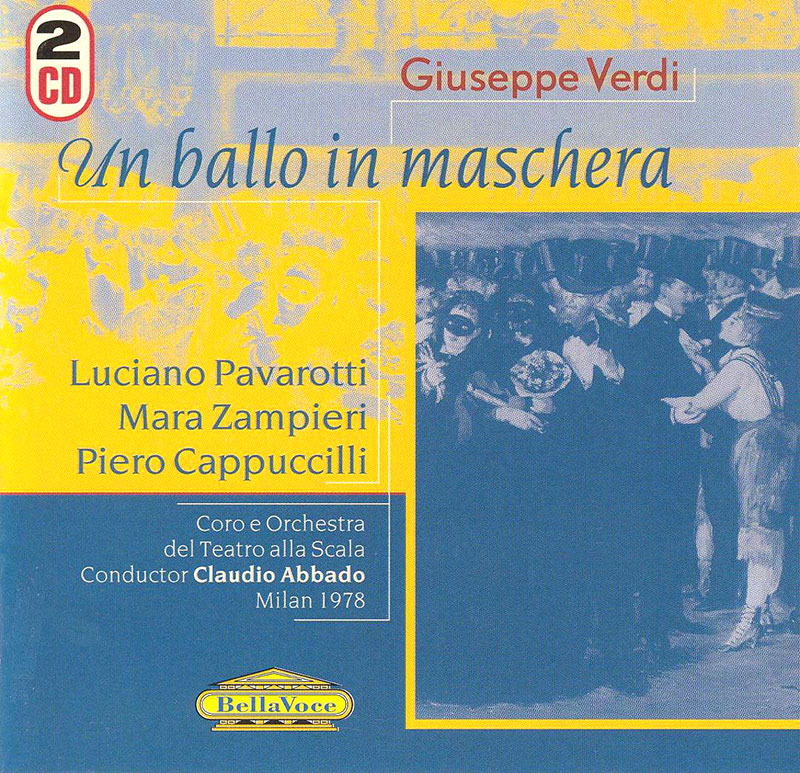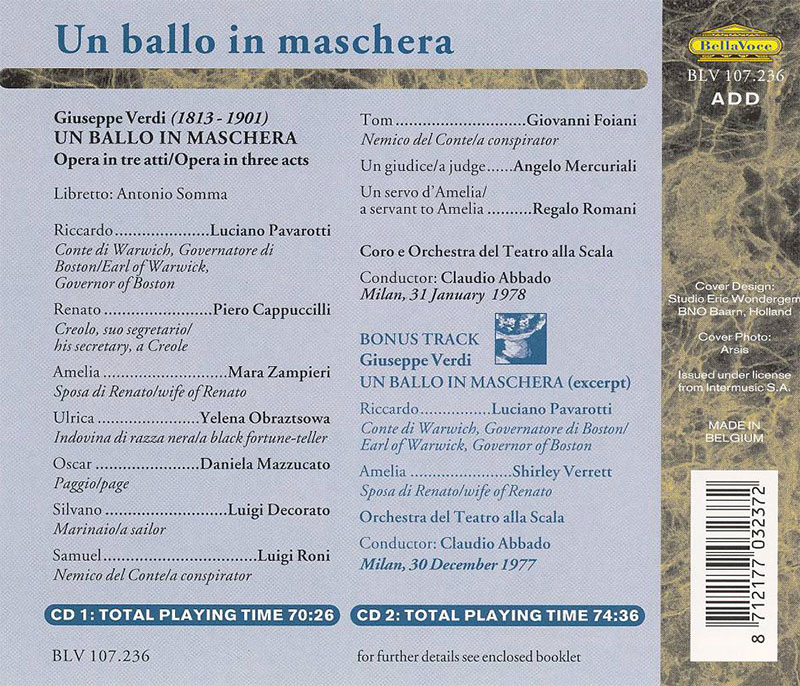Logowanie
Dlaczego wszystkjie inne nie brzmią tak jak te?
Chai Lang, Fan Tao, Broadcasting Chinese Orchestra
Illusive Butterfly
Butterly - motyl - to sekret i tajemnica muzyki chińskiej.
SpeakersCorner - OSTATNIE!!!!
RAVEL, DEBUSSY, Paul Paray, Detroit Symphony Orchestra
Prelude a l'Apres-midi d'un faune / Petite Suite / Valses nobles et sentimentales / Le Tombeau de Couperin
Samozapłon gwarantowany - Himalaje sztuki audiofilskiej
PROKOFIEV, Stanislaw Skrowaczewski, Minneapolis Symphony Orchestra
Romeo and Juliet
Stanisław Skrowaczewski,
✟ 22-02-2017
BARTOK, Antal Dorati, Philharmonia Hungarica
Dance Suite / Two Portraits / Two Excerpts From 'Mikrokosmos'
Samozapłon gwarantowany - Himalaje sztuki audiofilskiej
ENESCU, LISZT, Antal Dorati, The London Symphony Orchestra
Two Roumanian Rhapsodies / Hungarian Rhapsody Nos. 2 & 3
Samozapłon gwarantowany - Himalaje sztuki audiofilskiej
Winylowy niezbędnik
ClearAudio
Cartridge Alignment Gauge - uniwersalny przyrząd do ustawiania geometrii wkładki i ramienia
Jedyny na rynku, tak wszechstronny i właściwy do każdego typu gramofonu!
ClearAudio
Harmo-nicer - nie tylko mata gramofonowa
Najlepsze rozwiązania leżą tuż obok
IDEALNA MATA ANTYPOŚLIZGOWA I ANTYWIBRACYJNA.
Wzorcowe
Carmen Gomes
Celebrating the art and spirit of music - vol. 5 - Reference Songs
- CHCECIE TO WIERZCIE, CHCECIE - NIE WIERZCIE, ALE TO NIE JEST ZŁUDZENIE!!!
Petra Rosa, Eddie C.
Celebrating the art and spirit of music - vol. 3 - Pure
warm sophisticated voice...
SAMPLER - STS DIGITAL, Gregor Hamilton
Celebrating the art and spirit of music - vol. 2 - Love songs from Gregor Hamilton
...jak opanować serca bicie?...
SAMPLER - STS DIGITAL
Celebrating the art and spirit of music - vol. 1 - Leonardo Amuedo
Największy romans sopranu z głębokim basem... wiosennym
Lils Mackintosh
Celebrating the art and spirit of music - vol. 4 - A Tribute to Billie Holiday
Uczennica godna swej Mistrzyni
VERDI, Luciano Pavarotti, Mara Zampieri, Piero Cappuccilli, Orchestra e Coro della Scala di Milano, Claudio Abbado
Un Ballo in Maschera

pekinman 5,0 von 5 Sternen A riveting listen from start to finish. 5. Dezember 2015 - Veröffentlicht auf Amazon.com Many people have an automatic 'allergic' reaction to 'live' performances on recording. I understand. I used to be that way too. My first 'live' recording was Karl Böhm's now-classic 'Die Walküre' from Bayreuth in 1966 in which I was irked by the one or two coughs that emanated from the consumptive audience, something you will inevitably encounter in live recordings prior to about 1970 when cigarettes began to be more filtered and less socially acceptable. But as time passed I no longer noticed the bronchial outbursts, always from the first 5 rows behind the conductor, and was swept away by the energy and edginess of a performance taking place in front of real people without the safety nets of a highly controlled studio environment. And some conductors and singers were always better in the house than in the studio. In other words, live recordings often grow on the most finicky listener desiring perfection. Claudio Abbado was one of those conductors who made some great recordings in the studio, to be sure, but was always more alive and spontaneous at La Scala or the Vienna State Opera. Un ballo in maschera was one of only six Verdi operas he recorded in the studio or performed in the house. His DG recording is now considered a classic and often considered the best available from the studio. This live performance from La Scala in January of 1978, also the year of his spectacular Don Carlo three weeks earlier in the same house, is indispensable for all lovers of Verdi. The La Scala audience is very enthusiastic for this Ballo due mostly to the presence of HimSelf, Luciano Pavarotti, as Riccardo. But they become even more excited after Piero Cappuccilli (Renato) begins singing, then go a little nuttier after Mara Zampieri's (Amelia's) big aria in Act 2. Ballo is definitely 'a tenor's opera' but the other two leads are by no means inconsequential, hardly. But that night in Milan was Pavarotti's night to really ham it up and sing like a god, both of which he did to legendary effect. He is only rude to his colleagues two or three times, hogging the long notes longer than they and dragging out phrases in order to be the last voice standing, in a manner of speaking. But he was always awesomely musical, with perfect diction and rhythm, and he could act with his voice, even if he looked more like a rain-soaked 'ballon captif' on stage. And he had that smile. Pavarotti gets a huge ovation at the end of "Ma se m'e forza perderti", then the audience tries like h*ll to get Abbado to stop the proceedings at the end of the scene so they could cheer and shout for Big Lucy but Abbado pushes on with the chorus in the second scene, but the audience continues to applaud for the half a minute after scene two has begun. I expected them to boo Abbado at the end for denying them this relief but the entire performance was such a triumph for one and all they let it pass without unpleasant incident. Mara Zampieri has long been one of 'mine'. I have loved her voice since I first heard her Lady Macbeth on Sinopoli's wonderful recording (Philips). The only other commercial recording she made was as Minnie in Maazel's La fanciulla del West, also from La Scala (Sony) with Plácido Domingo. This and the Macbeth are also available on film. I have the filmed Fanciulla because the purely aural set is not very well captured in that live event. I am on the constant look-out for off-air broadcasts of Zampieri. She had a very large repertoire and her career lasted a good 18 years. She was a risky performer, withholding nothing. Her basic technique was very solid and she possessed a fine coloratura ability and excellent trills. The voice was huge but capable of quite delicate pianissimo singing. She SHOULD have been recorded more, and at a time when we had to put up with Mirella Freni and Katia Ricciarelli singing roles far too big for their otherwise lovely voices. So many 'what might have beens' when it comes to Zampieri's career. Abbado's Aida, Muti's La forza del destino and Sinopoli's Manon Lescaut and Tosca might have had quite different legacies than they have now. Piero Cappuccilli's Renato is superb. He excelled at brutish roles and Renato is quite a Neanderthal, filled with blind honor that transforms into murderous jealousy. His "Eri Tu" is one of the best I've heard. Daniela Mazzucato's Oscar is also a very fine Oscar. She is not as chirpy as some, more full voiced than Reri Grist for Muti and not cutesy-wutsey like Kathleen Battle for Solti (2nd recording). My favorite Oscar is Solti's (1st recording) Sylvia Stahlmann who combines coloratura brilliance with a full-voiced and boyish sound that is ideal for this part. Then there is Elena Obraztsova's Ulrica. I can't help loving the woman with her beastly voice, she could be so tiresome with that enormous, crass and buzzy sound. But she was musical, sang in tune and in rhythm and always showed mercy on her less-vocally well-endowed colleagues. Ulrica is a relatively short role so Obraztsova can pound out her chest voice all she wants without wearing out her welcome. She was largely a one-blast singer in that her basic sound did not vary much on either side of loud and louder, though she too was capable of surprising delicacy and agility when called upon. She never wobbled either, she just boomed, not entirely inappropriate for Verdi's fire-breathing dragons but also not the last word in how to sing them. She did sing a tremendous Eboli during this same period of time, at La Scala, with Abbado that has to be heard to be believed. Probably the greatest thing she did on record. The comprimario roles for this Ballo are extremely well cast with Luigi Roni and Giovanni Foiani turning in especially strong performances as the conspirators Samuel and Tom. The broadcast sound is excellent. The balance between pit and stage is perfect. Very little tape hiss (I only noticed it once for a minute or so in Act 2) and only one shy little cough from the 5th row behind the conductor, which is amazing as the Italians were the last nation in Europe to give up heavy smoking. This could be the recording that converts previously anti-live stalwarts, but you must love Un ballo in maschera or it might not 'take'. This fine BellaVoce recording is an excellent adjunct to your favorite studio sets. I love Abbado's DG set but this one here is more involving and exciting. I have a special fondness for Solti's Decca set. Carlo Bergonzi really trumps the competition with his youthful exuberance, humor and easeful (and tasteful) singing. I also greatly enjoy Birgit Nilsson's Amelia. And Cornell MacNeil's Renato is the best on record in my opinion. Muti's set has the glorious Amelia of Martina Arroyo and Plácido Domingo's beautifully sung, albeit careful, a little po-faced and correct, Riccardo. BellaVoce is a budget label but it inspires confidence with its packaging, unlike others, like Myto and company. There is an essay about the history of the opera and biographies of the singers and conductor, which is a lot more than Orfeo gives you at 3 times the price from the Vienna State Opera archives. This Ballo set includes a little bonus at the end of Disc two in the form of the love duet from Act 2, "Teco io sto..." from the old La Scala production from 1977, also with Abbado and Pavarotti, but with Shirely Verrett's Amelia. The sound is comparatively dim and raw and Verrett's voice displays the hardness that came on after she undertook soprano roles, but it is an interesting listen.
























